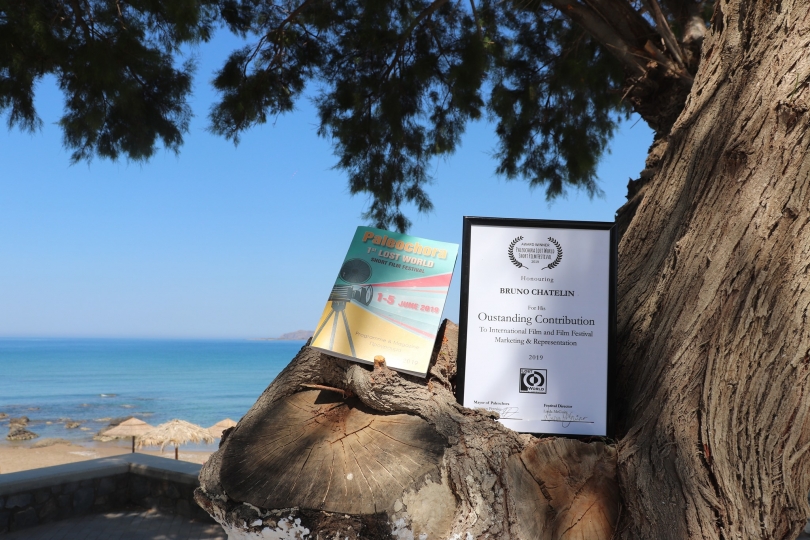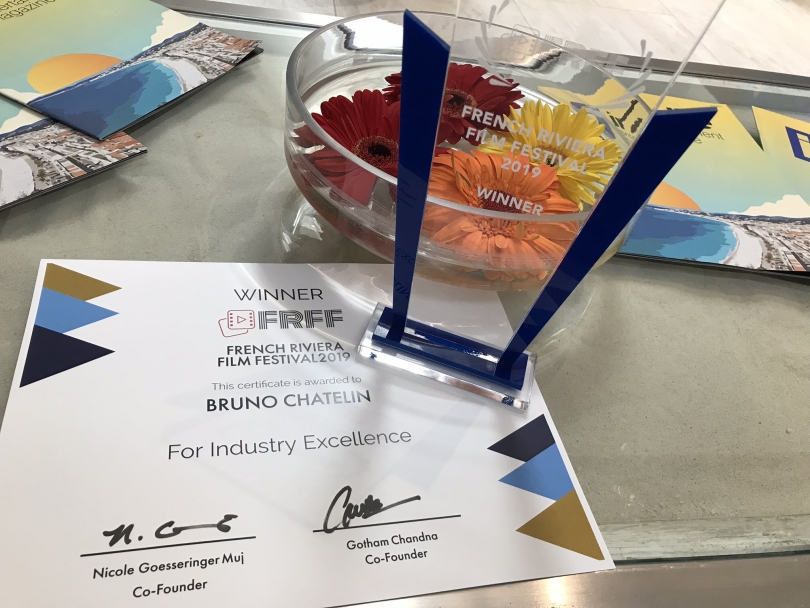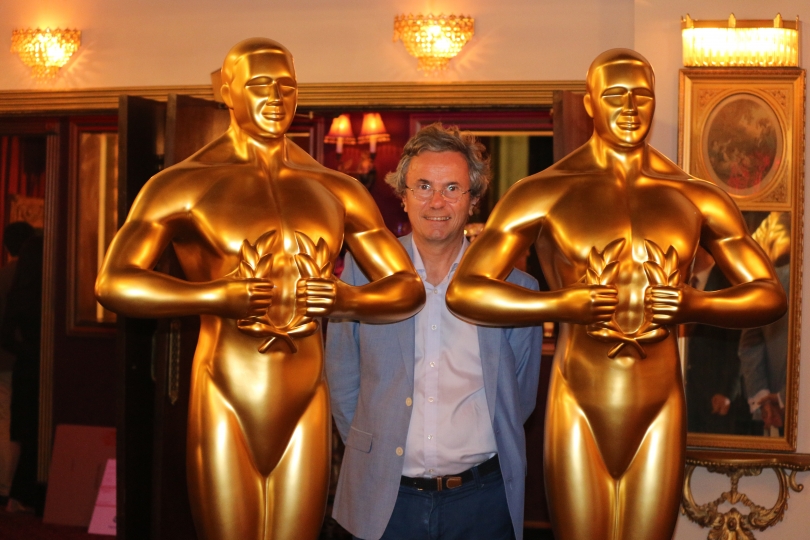The FESANCOR International Short Film Festival in Santiago, Chile ran October 18 -21
“The festival has grown up, but it still refuses to go feature-length.”
Gone are the days when a feature length was preceded by a handful of tasty film tit bits, bite size chunks of mini-flicks. These days, it’s the trailers that are more like mini movies. The ‘short’ is a mark of cinema’s early days. But over recent years it has been redeployed as an ideal space in which to play with distinct forms, from animation to documentary to experimental, all of which the Chilean festival, Fesancor, includes in its programming. Last year a new category, ‘Del Corto al Largo’ (From Short to Feature-length), was created, making space for productions that run over the usual twenty-minute mark. This is the festival’s answer to a problem particular to the Latin-American short film industry, where the possibility of broadcasting is confined by the dictates of regular advertising breaks. The ‘short’ is seeking its platform here.
The festival celebrates its 18th birthday this year. Yet despite it’s coming of age, Fesancor refuses to grow up, or “go long”. Organiser Jaime Muñoz insists on clinging to cinema’s formative years: “All Chilean film is short film”, he smiles. “After 18 years the festival has become adult, but it still refuses to go ‘feature-length’.” Taking place over a week at Santiago’s swish Palacio La Moneda, it heralds the short film genre, screening a selection of Chilean and international productions.
Child size or not, the festival is by no means puny. It has grown in enormous proportions since it began in 1992. Ballooning from screening 18 films in its first year to 108 this year, chosen from the 1,802 submitted. Fesancor is one of the largest festivals in Spanish-speaking Latin-America. It has established a reputation as a festival that showcases cutting edge productions, building its program on a panorama of styles. Thanks to the support of the Propia Cineteca Nacional (National Film Archives), the festival has been able to offer free admission to the general public this year.
The festival showcases its home talent, reserving a national prize for each category. It aims to create an environment of production, rescuing the Chilean film heritage from years of quiescence post-Allende-coup.
This dormancy can be traced back to a break between generations, following the rupture of the Pinochet dictatorship. The question of the generation gap is clearly an underlying premise to organiser Muñoz’ selection, though he may shy from dividing his program thematically, to avoid a sense of restriction. “Organizing a festival program by theme impedes a certain liberty on the part of the director’s vision”, he notes. Chilean filmmakers once only treated this rupture as a political problem. For a couple of years now, a new “semillero” (crop) of filmmakers is starting to look at it more as a social, cultural question, he tells us.
The first day of the festival pivots on this idea. Kicking off with Brasilian Avos by Michael Wahman, the film plunges deep into the question of generational heritage that seems to become be the theme of the day, with the click sound of the camera whirring and a grainy, retro, homemade aesthetic. In wobbly, handheld style, the camera looks through the eyes of a young Leo celebrating his birthday with his grandparents. The film teeters awkwardly on the topic of Auswitchz when he naïvely presses his elders on the issue, showing that the generation split is a common Latin-American subject of focus. Two longer films, El lugar de la Felicidad (Chile), and Detras de la Ventana (Peru) treat the subject with grace and poise.
The weaker La Alegria Ya Viene (Chile) appears to mock senility in a tactless, ungracious way. But who gets the last laugh? The black comedy certainly had the Chileans chuckling – an audience who seemed prepared to forgive the clumsy filmmaking for a silly sardonic gag. The Andean nation’s paramount sense of humour can be observed in Sebastian Silva’s Sundance-celebrated La Nana (The Maid) [2009]. In La Alegre, our grandfather is thrust, dazed and bumbling, into a modern context, the capital city. His short-fused grandson’s impatience to his dementure gives rise to a number of eyes-rolling-to-the-back-of-his-head moments. Silly granddad. Mocked for his grand socialist pretensions, it is all the same Chile’s president who ends up being the butt of the joke. “Grandad, this is our president now”, smiles the young man, pointing to a caricature on a popular Condor cartoon book. Isn’t visual satire the greatest weapon against political authority?
El Lugar de la Felicidad takes the same questions and handles them with sensitivity and poignancy. Taking hold of the evening’s recurring theme of memory block, the excellent opening sequence plunges us into the grandfather’s world, the world he inhabits, the past – the camera following his slow, heavy movements as he takes out relics of a time gone by from dusty drawers. The modern day spills onto the screen with heart-breaking poignancy as he opens the shutters of the disused train station and the light of (the modern) day floods the screen. Our grandfather here, dressed in his old uniform, stands for a generation that is trapped in a time loop. Looping through a conversation between grandfather: “Dondé quieres ir?” (“Where to?”), and grandson: “No sé, cualquel parte” (“I don’t know, anywhere”), the film has both a sense of hope and nostalgia. As the title (Where Hapiness Is) shows, the film is taking on more than just a question about generations, asking itself where it wants to go next.
Departing from the topic, Carlos Font’s Vida de Perros (Spain), a short that has done the festival rounds this year, unfolded with disarming lightness. The music follows Toni Gonzales’ very human performance through light-hearted to heavy and back again. Pairing performance with soundtrack, the film achieves a cheerful probing of everyday ethics as a couple try to ditch their pet dog. The heaviness in their hearts is conveyed through the actors’ expression, but set to a backdrop of sweet music and dappled sunshine. The director questions the morality of abandonment and human relationships à la Raimond Gaita, as Gonzales sits down to have a conversation with his dog, trying to explain away the blame. But we flinch with guilt as, in perfect film timing, he walks away only to find an empty space where his car, and wife, should be waiting, perfectly punctuated with a bark from Fido.
Borders
Mikel Ruedas’ impacting account, Cuando Corres (Spain), of a boy migrant’s perilous journey trying to cross the Moroccan border into Spain keeps the audience on its toes. As the boy clings to the underside of a juggernaut in an endeavour to get across, the camera cuts back and forth from one side of the border to the other. A slow motion shot of the boy taking a penalty on a dusty pitch screeches into the dark dangerous horn of the heavy-duty lorry. The use of light colours the two sequences. Bright, sunny, tangerine-tinged memories of Tangier, memories of home, switch back into darker, dangerous scenes at the border, where the boy ducks behind transit lorries avoiding the glare of the guard’s torch, crouching on the tarmac.
Let down only by some hammy acting, Andres Rangel’s Peoria (Mexico) is a defiant, daring look at the politics surrounding the American/Mexican border. The storyboard sees a young Mexican refugee hide in a dog kennel, when he runs into the preened back garden of an all-American family home. The family end up unconsciously replacing their dinky pet dog with a little pet Mexican, who stays put, mute. The underlying message of the film has a clear political agenda, and demands a call to conscience. Some great moments in the script (“Mexicans are older, duh!”) give way to dark, provocative shots that do not shy from comment on American culture. We see the kids wielding their dad’s rifle in the nameless Mexican boy’s face, as he cowers behind the kennel. Shocking and uncomfortable, chilling scenes of the kid’s cruel behaviour persist, as they strap boy with collar. Less forgivable are the moments we see the adults inadvertently address boy like animal. Certainly not forgettable.
Cinema was born in short form, and it seems the Fesancor festival wants to induce a rebirth in Chilean film production: “I was interested in the short before it existed in Chile”, Muñoz claims. Through the festival, he says, “…and after the rupture of the dictatorship, I want to establish it as a genre in its own right, one that can develop autonomously.”
The festival includes as many amateur pieces as it does professional. Muñoz tells me that the latest school of Chilean filmmaker is laying a new kind of foundation. This cohort of graduates is making a type of film that wants to define itself by theme. “Before, the short was not narrative but just descriptive. But the short film is defined by its length, not its contents. Psychological depth can’t be explored.” Muñoz continues. More than being symbolic, then, the nature of short film can permit an echo into real life. Real life encounters are defined by the here and now, by their often transient, fleeting nature. Real life doesn’t ask for narrative context.
http://www.fesancor.cl/programacion-fesancor/
Alice Lawrence

 Chatelin Bruno
Chatelin Bruno 




























